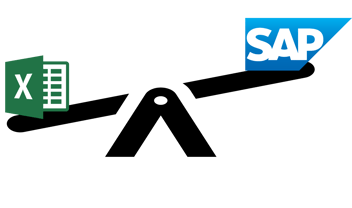Production Planning & Scheduling
The Top 10 Skills for Production Planners
In the ever-evolving and competitive field of manufacturing, the role of a production planner is pivotal to ensuring operational efficiency and meeting production targets. A production planner is responsible for balancing demand with production capacity, scheduling production activities, and coordinating with various departments to ensure smooth operations. As such, certain skills are essential for anyone looking to excel in this role. Here, we explore the top 10 skills that are crucial for production planners in today's manufacturing landscape.
1. Analytical Skills
Analytical skills are at the core of production planning. Planners must be able to analyze production data, forecast demand, and make informed decisions to optimize production processes and resource allocation.
2. Problem-Solving Abilities
The manufacturing process is prone to unforeseen challenges and disruptions. Problem-solving abilities enable production planners to quickly identify issues, develop solutions, and implement corrective actions to minimize impact on production schedules.
3. Attention to Detail
Attention to detail is critical in ensuring that production plans are accurate and feasible. This includes precise scheduling, inventory management, and quality control to avoid costly errors and inefficiencies.
4. Communication Skills
Effective communication skills are essential for coordinating with various stakeholders, including production teams, suppliers, and customers. Clear communication ensures that everyone is aligned with the production schedule and any changes are promptly addressed.
5. Organizational Skills
Organizational skills help production planners manage multiple tasks and priorities efficiently. This includes scheduling production runs, tracking progress, and ensuring that resources are allocated effectively.
6. Flexibility and Adaptability
The ability to be flexible and adaptable is crucial in a fast-paced manufacturing environment. Production planners must be able to adjust plans based on changing demands, supply chain issues, or production challenges.
7. Technical Proficiency
Technical proficiency in production planning software and tools is necessary for efficient planning and analysis. Familiarity with ERP (Enterprise Resource Planning) and APS (Advanced Planning and Scheduling) systems can enhance planning accuracy and efficiency.
8. Decision-Making Skills
Strong decision-making skills enable production planners to make timely and effective decisions that impact production schedules, resource allocation, and overall productivity.
9. Teamwork and Collaboration
Teamwork and collaboration are vital for working effectively with cross-functional teams to achieve production goals. A collaborative approach helps in resolving issues and optimizing production processes.
10. Leadership and Management Abilities
While not every production planner will lead a team, leadership and management abilities can be beneficial for those who do. These skills help in motivating teams, managing conflicts, and driving production initiatives.
Leveraging AI for Enhanced Efficiency
Mastering these top 10 skills can significantly enhance a production planner's ability to navigate the complexities of modern manufacturing.
Morever, incorporating artificial intelligence (AI) and machine learning (ML) technologies can significantly enhance the efficiency and effectiveness of production planners. AI can assist in analyzing vast amounts of data for better demand forecasting, identifying optimization opportunities in the production process, and suggesting real-time adjustments to plans. Embracing AI as a copilot in production planning can lead to smarter decision-making, reduced waste, and improved production outcomes.


